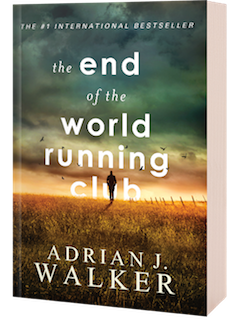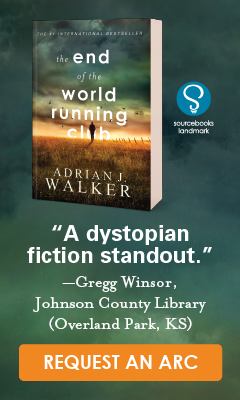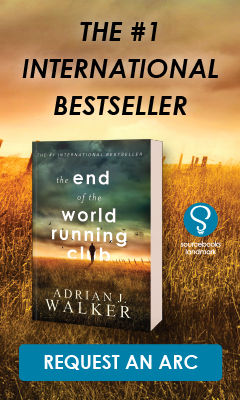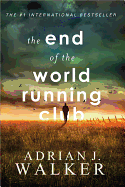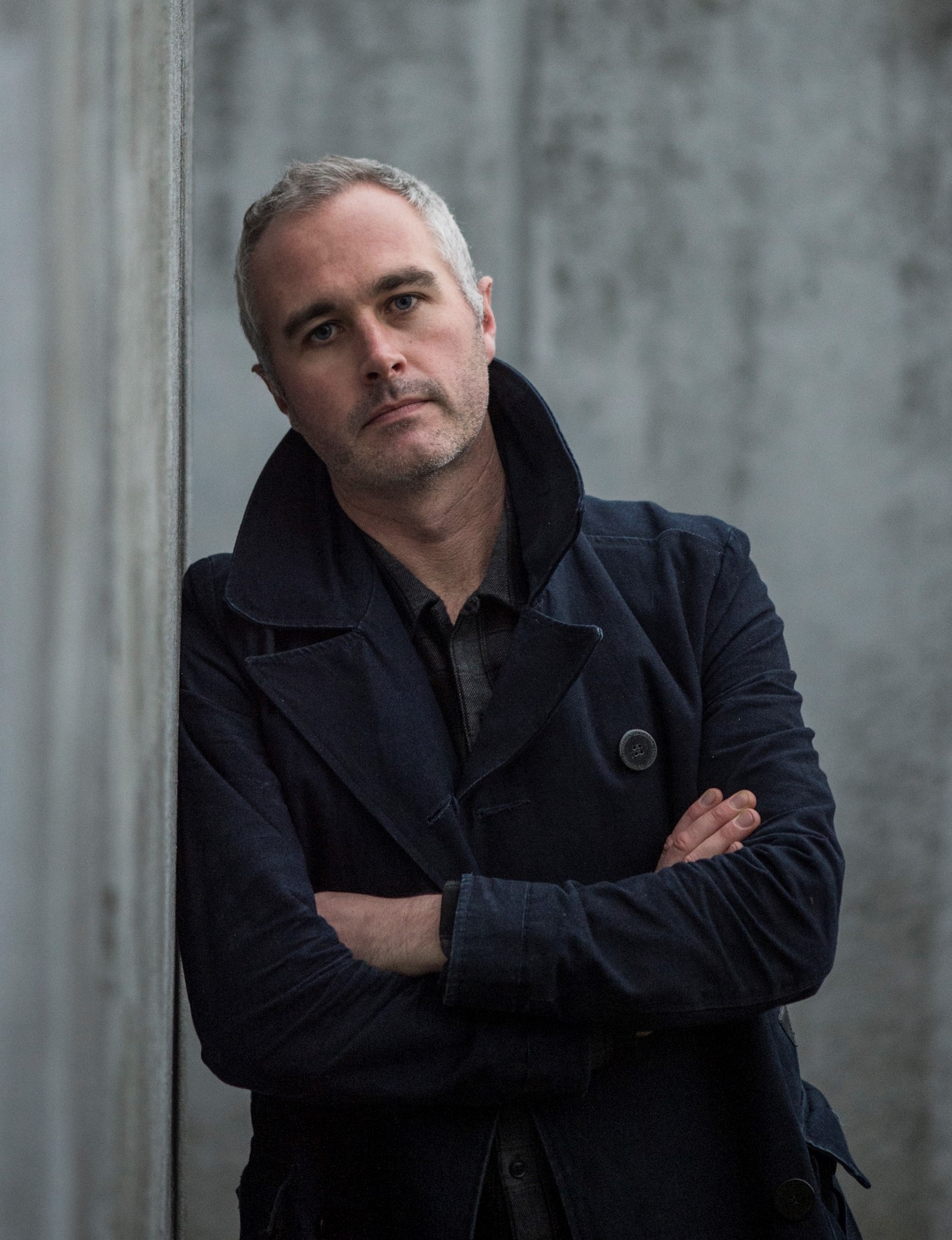The End of the World Running Club
by Adrian Walker
In The End of the World Running Club, Adrian Walker (From the Storm) uses the end of the world as we know it to skillfully probe big, significant questions of what it means to be human, what it means to survive and what happens when merely surviving is not enough.
Edgar Hill is not the most together guy in the world. Father of two young children, he drinks too much, doesn't exercise, phones it in at his job, leaves the bulk of childcare to his wife and stumbles through each day. "What if this all just went away?" he muses. "What if it all just blew away?" And then, one day, it does. With only a few hours' notice, the United Kingdom is struck by multiple asteroids, obliterating the country and leaving Ed and his family buried in their home's small cellar, waiting for help.
Walker's ability to imagine a post-apocalyptic world in crisp detail is on full display in the early pages of The End of the World Running Club. Telling details of life pre-apocalypse are scattered throughout Ed's recollections of his family's time trapped in their cellar and vivid descriptions of the upturned world into which the Hills emerge upon their rescue: most of the country has been destroyed, cities demolished and roads blocked. The Hill family is taken to an army barracks near Edinburgh, where they wait, with their rescuers, for news from the rest of the world.
The inclusion of these pre-apocalyptic details, in particular, allows Walker not only to highlight how much of the world is changed by the asteroid strike--but how much stays the same. Ed and his wife still fight. Friends still comfort each other. People still fall in love. And a few see opportunity in the power vacuum left by the collapse of civilization. Some people give up. Some people endure.
When Ed's wife and children are evacuated to the southern coast of England to await the arrival of rescue boats and he is accidentally left behind, Ed chooses to be someone who endures. With the roads impassable, Ed and the small group of survivors left with him set out on foot to cross the United Kingdom. Their journey quickly evolves into an ultimate running adventure, as the group must traverse dozens of miles a day to have any hope of arriving at the coast before the last boats depart. This race against the clock sets the pace of the rest of The End of the World Running Club, adding an element of suspense to an already compelling story.
As Ed and his ragtag group struggle to trek some 500 miles, the focus of The End of the World Running Club shifts from detailing the end of the world to exploring various characters' reactions to it. Most centrally, that is Ed, who narrates the novel and whose transformation over the span of a few hundred pages is most remarkable; he grows from a layabout who did little more than what his body demanded ("eat, sleep, stay still") to a man who will run 30 miles a day to reach his family. But alongside him, readers get to know a cast of colorful and multi-faceted characters: Harvey, the aging Australian who once ran across a different country; Bryce, a bear of a man who has an unexpected soft side; Grimes, a female soldier who sees herself as the group's protector; and Richard, a once well-off father who still clings to shadows of classism.
"It's hard being a human," Ed says. "Most of the time we're just blind idiots seeking joy in a world full of fear and pain. We have no idea what we're doing, and on the rare occasions when we get things right, we're just lucky. Our lives are filled with the humdrum: dust and noise with no meaning. And yet they contain moments that seem to mean something, something we can't describe but want to."
The End of the World Running Club is full of small moments of philosophical musings like this one, in which Ed reflects on the end of the world as it relates to the human condition, and to his own. Perfectly balanced by the suspenseful race to the coast and the number of less-than-pleasant characters the running club encounters along their route, these moments of philosophy make Ed's story all the more emotional.
Though readers may never face the extreme situations Ed and his companions endure, much of their experience will feel relatable and even, at times, familiar. In that, The End of the World Running Club proves a great success as a novel of the apocalypse: one that focuses not on the nightmares that the end of the world might bring, but on what it takes to find meaning amid such horrors. --Kerry McHugh



